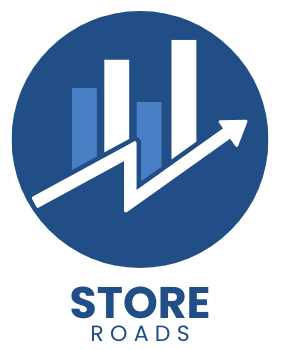In the competitive world of online business, choosing the right eCommerce platform is crucial. With a multitude of options available, each with unique features, pricing, and customization options, it’s essential to find the best fit for your business needs. In this comprehensive comparison, we’ll look at the top eCommerce platforms, including Shopify, WooCommerce, BigCommerce, Magento, and Squarespace, and see what makes each stand out.
Table of Contents
- Why Choosing the Right eCommerce Platform Matters
- Shopify: Best for Small to Medium-Sized Businesses
- WooCommerce: Flexible and Cost-Effective for WordPress Users
- BigCommerce: Robust Features for Larger Enterprises
- Magento: High Scalability for Enterprise-Level Businesses
- Squarespace: Simple and Stylish for Small Businesses
- Comparing the Platforms: Feature Table
- Conclusion: Which eCommerce Platform is Right for You?
Why Choosing the Right eCommerce Platform Matters
The right eCommerce platform can define the success of your business. Your platform needs to be reliable, scalable, and adaptable as your business grows. Factors like user experience, design flexibility, and payment options also play a vital role. Ultimately, the right choice can help you increase conversion rates, improve customer satisfaction, and drive long-term growth.
Shopify: Best for Small to Medium-Sized Businesses
Shopify is one of the most popular eCommerce platforms and is known for its user-friendly interface and extensive app store. It’s a hosted platform, meaning Shopify takes care of hosting, security, and updates.
Pros:
- Ease of Use: With a drag-and-drop editor, it’s easy for non-technical users to create and manage their store.
- App Integrations: Shopify’s app marketplace includes thousands of integrations for payments, marketing, and customer service.
- Responsive Support: 24/7 customer support through phone, chat, and email.
Cons:
- Limited Customization: Customization can be challenging without HTML or CSS knowledge.
- Transaction Fees: Shopify charges a transaction fee unless you use Shopify Payments.
Pricing:
- Basic Plan: $39/month
- Shopify Plan: $105/month
- Advanced Plan: $399/month
WooCommerce: Flexible and Cost-Effective for WordPress Users
WooCommerce is a free WordPress plugin that enables eCommerce functionality, making it ideal for businesses already using WordPress. Its open-source nature allows for customization and flexibility.
Pros:
- Customizable: Highly customizable with numerous plugins and themes.
- Cost-Effective: No monthly fees if self-hosted; you only pay for domain and hosting.
- SEO-Friendly: Leverages WordPress’s SEO capabilities.
Cons:
- Steep Learning Curve: Requires some technical knowledge for setup and maintenance.
- Hosting Requirements: You need to handle hosting, security, and updates.
Pricing:
- Core WooCommerce Plugin: Free (additional costs for themes, hosting, and plugins).
BigCommerce: Robust Features for Larger Enterprises
BigCommerce offers a powerful, all-in-one solution tailored for larger and growing businesses. Known for its robust feature set and scalability, it supports multichannel selling and complex inventory management.
Pros:
- Feature-Rich: Extensive built-in features for advanced inventory, SEO, and marketing.
- Scalable: Suitable for businesses with high sales volumes and complex products.
- SEO Capabilities: Advanced SEO tools to enhance online visibility.
Cons:
- Learning Curve: Some users find BigCommerce complex to navigate initially.
- Higher Pricing: Pricing is higher than some other platforms, especially as you scale.
Pricing:
- Standard Plan: $39/month
- Plus Plan: $105/month
- Pro Plan: $399/month
Magento: High Scalability for Enterprise-Level Businesses
Magento is an open-source platform that offers unmatched flexibility and scalability, ideal for enterprise-level businesses. However, it requires a strong technical background for installation and management.
Pros:
- High Customization: Fully customizable to suit complex business needs.
- Scalability: Suitable for large catalogs and high traffic.
- SEO and Marketing Tools: Advanced SEO, marketing, and analytics features.
Cons:
- Complex Setup: Requires technical expertise or a developer.
- Expensive: Enterprise-level hosting and development costs can be high.
Pricing:
- Open Source: Free (self-hosted)
- Magento Commerce: Varies (starting around $22,000/year)
Squarespace: Simple and Stylish for Small Businesses
Squarespace is known for its visually appealing designs, making it a good choice for creative businesses. It’s best suited for small businesses needing simple eCommerce functionality without advanced features.
Pros:
- Beautiful Templates: Known for high-quality, visually pleasing templates.
- User-Friendly: Drag-and-drop editor for quick setup.
- All-In-One Solution: Hosting, SSL, and domain are included in packages.
Cons:
- Limited eCommerce Features: Limited compared to more advanced platforms.
- Lack of App Marketplace: Fewer third-party integrations than Shopify or WooCommerce.
Pricing:
- Personal Plan: $16/month
- Business Plan: $23/month
- Commerce Basic: $36/month
- Commerce Advanced: $65/month
Comparing the Platforms: Feature Table
| Feature | Shopify | WooCommerce | BigCommerce | Magento | Squarespace |
|---|---|---|---|---|---|
| Ease of Use | High | Moderate | Moderate | Low | High |
| Customization | Moderate | High | Moderate | Very High | Low |
| Hosting | Included | Self-Hosted | Included | Self-Hosted | Included |
| SEO Features | Moderate | High | High | High | Moderate |
| Pricing | Moderate | Low to Moderate | Moderate to High | High | Low to Moderate |
| Best For | Small-Medium Businesses | WordPress Users | Growing Businesses | Enterprise-Level | Small-Creative Businesses |
Conclusion: Which eCommerce Platform is Right for You?
Choosing the best eCommerce platform depends on your business needs, budget, and technical expertise:
- Shopify: A user-friendly choice for small to medium-sized businesses that need an all-in-one, hosted solution.
- WooCommerce: Perfect for WordPress users seeking flexibility and cost-efficiency.
- BigCommerce: Ideal for larger businesses needing robust features and scalability.
- Magento: Best for enterprise-level businesses with complex requirements.
- Squarespace: Suitable for small, creative businesses focused on design and simplicity.
Final Tip: Prioritize your core requirements and consider the scalability of each platform to ensure you select the one that will support your business as it grows.
By understanding each platform’s strengths and limitations, you’ll be better equipped to make an informed decision and set your eCommerce store up for long-term success. Happy selling!



